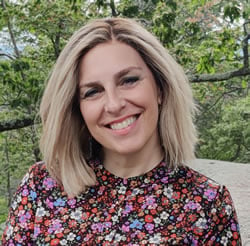Look in the mirror. Take a long and hard look at who you are. Does the vision that stares back at you reflect the same depth of innocence that it once held?
At some stage in life, somewhere along the line, I think many of us lose some level of inspiration, innocence, faith, honesty or sincerity.
(Maybe the fatalities are greater for people in my profession—writing and lecturing to inspire others. Or maybe it's just what growing up is all about.)
But at some point, you take a realistic look in the proverbial mirror and note that the tranquil simplicity is gone. The clear black and white lines delineating right and wrong that you used to so vociferously defend have become blurred by a newfound appreciation of the nuances of the grays. You may still be defending the same right and wrong, but the strength of your persuasion has dimmed.
Perhaps the innocent faith in the goodness and uprightness of your Maker has been tarnished by what you now consider a realistic cynicism in the face of reality.
Perhaps too many of the standard answers no longer sound so profound, nor so true. At times, the questions may now seem stronger than the answers.
If you're really honest, you'll admit that your motivation to do something because it's the right thing to do, has become shadowed by calculated deliberations in which your ego comes into play. Big time.
And yet outwardly it is still the same you, still fulfilling the same religious, communal and personal responsibilities with the same degree of outward fervor.
But inwardly, you, and only you, know too well that there has been some paradigm shift.
What happened? And can you ever regain your former level of pure innocence? Can you ever rediscover the simplicity that you lost?
No, I don't think so. Just as there's no turning the clock of life back, there's no regaining a simple innocence and acceptance in your relationship with your Creator.
But then perhaps that's what the challenge is meant to be.
For you. Right now.
Maybe the point is not to turn backwards or regain an innocence, but rather to find a new meaning, to discover stronger answers within your struggle.
To discover your identity within your ego, not by negating it, but by utilizing it. To reveal a G‑d who can tolerate the questions, just as much as the answers. To find a faith that can tolerate cynicism and protests, yet still remains faith.
To uncover the real spirit behind the deed, even when it feels like a hollow act lacking vigor.
And perhaps, that is really the message of our nation's long sojourn through this spiritually displacing exile.
Perhaps our challenge is not to reach the prior heights of purity, faith, acceptance and spirituality of the great predecessors of our nation—people who blindly followed and trusted implicitly in their Maker. Maybe we aren't intended to reach the devotion and depths of sincerity of the great shepherds of our people, or even of the simple folk whose lives they inspired.
But maybe the challenge that our nation faces today is despite the overwhelming cynicism, despite our sophisticated questions, despite our numbness and lack of any spiritual feeling—to still find and maintain our connection.
On some level, maybe overcoming the challenges facing each of us today, nationally, after this long exile is the greatest challenge ever.
And perhaps, personally too, finding this connection despite our cynicism makes it even more real than any realness we may have originally had.







